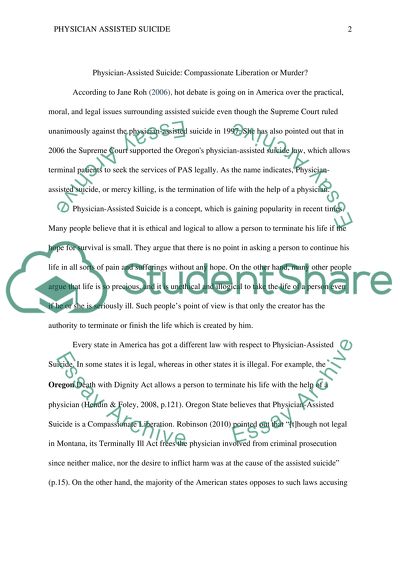Cite this document
(“Physician-Assisted Suicide: Compassionate Liberation or Murder Research Paper”, n.d.)
Retrieved from https://studentshare.org/psychology/1458391-physician-assisted-suicide-compassionate
Retrieved from https://studentshare.org/psychology/1458391-physician-assisted-suicide-compassionate
(Physician-Assisted Suicide: Compassionate Liberation or Murder Research Paper)
https://studentshare.org/psychology/1458391-physician-assisted-suicide-compassionate.
https://studentshare.org/psychology/1458391-physician-assisted-suicide-compassionate.
“Physician-Assisted Suicide: Compassionate Liberation or Murder Research Paper”, n.d. https://studentshare.org/psychology/1458391-physician-assisted-suicide-compassionate.


